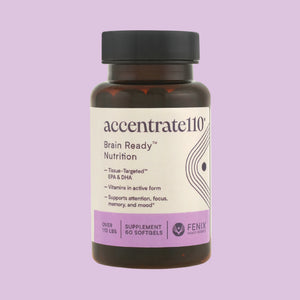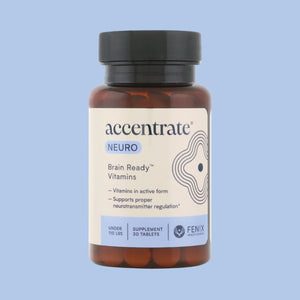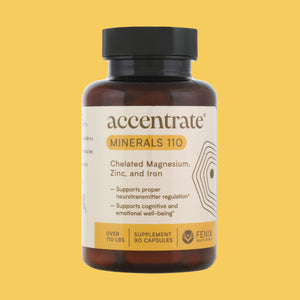Support Focus with a Holistic Approach

Although every mental health journey is unique, several simple practices can help you stay focused and attentive. Often, the key to concentration is a combination of these strategies for a more holistic and comprehensive approach. Let's explore a handful of ways you can promote focus for yourself and your family.
1. Exercise
Exercise keeps your mind sharp by increasing oxygen flow to the brain and releasing important neurotransmitters like dopamine and serotonin. These neurotransmitters support mood, focus, and memory, while also helping the brain adapt to new challenges. Regular physical activity isn't just good for your body; it's a key factor in maintaining mental clarity and cognitive function. Plus, it supports executive function, making tasks like decision-making and planning easier, and it releases endorphins, helping would feel good and stay motivated.
2. Meditation
In addition to exercise, meditation is another tool for supporting focus and attention. While it may seem difficult initially, the practice of mindfulness, observing the present moment without judgment, can significantly calm the mind and help with concentration. By practicing mindfulness, you learn to control your attention span through repeatedly returning to focus when distractions arise. Combining meditation with activities like yoga can be extra beneficial, integrating movement with mental discipline.
3. Sleep
Good sleep is essential for maintaining focus and attention. Many people struggle to get quality rest, but establishing a consistent nightly routine can make a significant difference. This includes setting a regular bedtime and sticking to it, as well as avoiding stimulating activities like scrolling on your phone before bed. Creating a calming pre-sleep routine, such as reading or meditating, can signal to your body that it's time to wind down. For some, magnesium supplementation has been found to aid in relaxation and sleep. By prioritizing healthy sleep habits, you can support cognitive function and stay more focused throughout the day.
4. Diet
While specific dietary needs vary, incorporating foods rich in nutrients that support brain health can be beneficial for focus. Protein-rich foods aid concentration, while complex carbohydrates found in vegetables and fruits can contribute to better sleep quality. Omega-3 fatty acids, found in cold-water white fish like salmon, support neurotransmitter function. On the other hand, excessive sugar, simple carbohydrates, and caffeine can negatively impact focus and attention, so limiting these can also be a benefit. If you don’t get proper nutrients in your diet, dietary supplements can help fill nutritional gaps and support cognitive health. By nourishing your body with the right nutrients, you can support focus and attention.
5. Supplementation
Certain dietary supplements can provide essential nutrients that support optimal brain function, helping individuals stay focused and on task. Omega-3 fatty acids, B vitamins, vitamin D3, minerals, and specific probiotic strains are particularly beneficial for cognitive health. These nutrients act as nature's building blocks for the brain, aiding in focus and emotional balance. At Fenix, we prioritize using the most readily usable forms of these nutrients, ensuring that our supplements offer Brain-Ready™ nutrition. By incorporating these supplements into your routine, you can provide your brain with the support it needs to maintain focus and mental well-being.
A comprehensive approach is the key to maximizing potential focus. Incorporating regular physical activity, mindfulness practices, consistent sleep patterns, and a balanced diet rich in brain-supporting nutrients can support mental clarity.
If you have further questions about how nutrition can support focus or to learn more about our products, please contact us.
Contact Us
These statements have not been evaluated by the Food and Drug Administration. This product is not intended to diagnose, treat, cure, or prevent any disease.
References:
1. Cscs, D. P. R. (2021, October 19). Exploring the link between ADHD and exercise. Healthline. https://www.healthline.com/health/fitness/adhd-and-exercise
2. ADDitude Editors. (2020, October 9). 8 No-Fail Focus Tricks for Adults with ADHD. ADDitude. https://www.additudemag.com/how-to-focus-adult-adhd-tips/
3. Levine, H. (2024, March 13). Meditation and yoga for ADHD. WebMD. https://www.webmd.com/add-adhd/adhd-mindfulness-meditation-yoga




